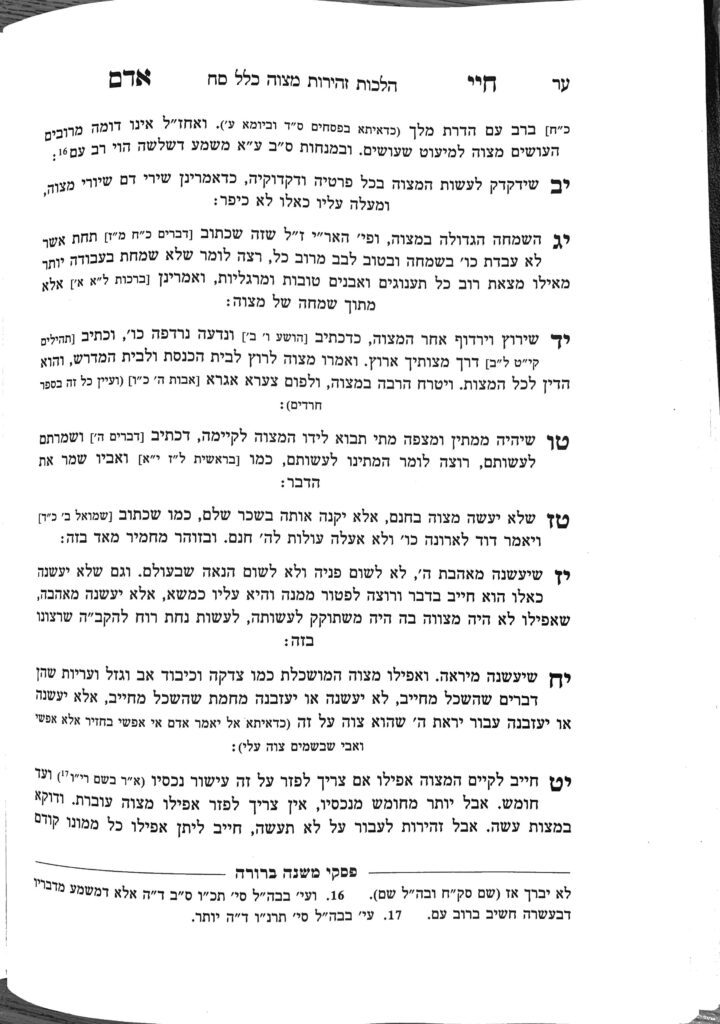We are beginning siman 16. In siman 15, we discussed the level of responsibility one has to a mitzvah prior to the mitzvah, such as taking tallis and tefillin on a trip even if the trip is not expected to require it. We will discuss other applications of this idea in siman 19, and how far this responsibility is taken.
In siman 16, the Chayei Adam writes that one should not do a mitzvah for free, but should prefer to spend money on the mitzvah. The Chayei Adam brings a proof to this idea from Dovid Hamelech, who insisted on paying for the site of the Beis Hamikdash. The Chayei Adam adds that the Zohar is very machmir on this idea, that it is more appropriate to pay for a mitzvah.
Some examples of this idea include:
- Buying an aliyah rather than receiving it for free;
- Buying tallis and tefillin rather than borrowing.
- If one has the option between an esrog which is more mehudar which they received for free, or a less mehudar esrog which they paid for, the Ben Ish Chai writes that one should use the esrog they paid for.
- The Ben Ish Chai writes that if there are two sandaks in shul one morning, one who received the sandaka’us for free and one who paid for it, the aliyah in shul should go to the one who paid for their sandaka’us, because they are performing the mitzvah in its most proper fashion.
The Zohar to which the Chayei Adam refers is in parshas Terumah. The Zohar says that a person must understand that they should not do a mitzvah for free. They should be willing to put their resources towards doing a mitzvah.
If a person has an opportunity to do a mitzvah, and it will not cost them anything, they should certainly do the mitzvah. If they are offered to do the mitzvah for free, or to pay for it, it is appropriate that they should spend their money for it. Hashem gave us money to use, so spending money on a mitzvah is a proper allocation of one’s resources. The chiyuv to spend money to perform a mitzvah, and the amount one is chayav to spend, will be discussed in siman 19.
Summary
One should prefer to spend their money to perform a mitzvah, and not to perform it for free. Certainly, if the only way to perform the mitzvah is for free, they should still perform the mitzvah, but it is preferable to spend one’s money for it.



